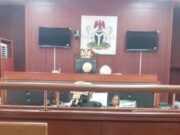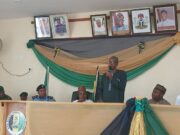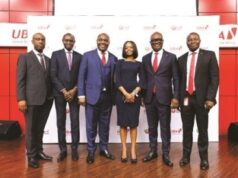BUA Cement Plc, has accused middlemen, or ‘dealers,’ of being the primary culprits behind the high cost of cement across the country.
The Chairman of the Board of Directors, Abdul Samad Rabiu, stated this at the company’s 8th Annual General Meeting held in Abuja on Thursday
He noted that despite the company’s efforts to ensure cement was sold at an affordable rate, these dealers have manipulated the market to their advantage.
Rabiu stated that BUA Cement had set the price of a 50kg bag of cement at N3,500, a move aimed at making the product more accessible to consumers. However, this price reduction did not reach the end users as intended. “We sold cement to the dealers at a price that would allow them to sell at N3,500 per bag, but their desire for excessive profits led them to sell at N7,000 and above,” Rabiu remarked, pointing to the greed of these intermediaries as the root cause of the inflated prices seen in the market.
Further corroborating the Chairman’s statement, BUA Cement’s Managing Director, Yusuf Binji, acknowledged the complexities involved in controlling retail prices due to the company’s business model.
“Our model involves selling to distributors, who then sell to retailers before the cement reaches the end users. This multi-layered distribution chain makes it difficult for a private company like ours to enforce pricing,” Binji explained.
He emphasized the need for government intervention in regulating the prices at which cement is sold to consumers. Despite the challenges, Binji noted that the company has seen relative price stability since the adjustments made in early 2024. He credited this stability to the industry’s response to government pleas and collaborative efforts with the Ministry of Trade and Industry.
BUA Cement has not only focused on price moderation but also on increasing production capacity to meet growing demand. During the second quarter of 2024, the company commissioned two new production lines, adding six million metric tons per annum to its existing capacity. This expansion is expected to alleviate the pressure on supply, especially during peak construction seasons when demand typically exceeds supply, leading to price hikes.
“We believe that with the moderation in the exchange rate and our increased capacity, the outlook for 2024 is very positive,” Binji asserted. He also hinted at potential price reductions if the Naira appreciates, which would allow the company to adjust prices in favor of consumers.
In a bid to mitigate the risks associated with the transportation of Liquefied Natural Gas (LNG) over long distances, BUA Cement is investing in energy infrastructure to ensure self-sufficiency. The company is constructing a mini LNG plant in Ajaokuta, designed to supply its Sokoto plant and potentially other locations. This strategic move is expected to reduce the company’s reliance on external energy sources and ensure a steady supply of power to its operations.
The new LNG plant, with a capacity of 700 tons per day, represents a significant investment running into hundreds of millions of dollars. This facility will enable BUA Cement to convert LNG into gas and distribute it efficiently across its production units, enhancing operational efficiency and reducing production costs.
Despite the challenging macroeconomic environment, BUA Cement recorded impressive financial results for the year 2023. The company reported a 27.4 percent increase in net revenue, rising to N460 billion from N361 billion in 2022. Capacity utilization also improved to 61.2 percent from 59.8 percent in the previous year, driven by higher cement volumes dispatched, which bolstered the company’s market share.
However, the company faced setbacks in its profitability, with profit after tax declining by 31.2 percent to N70 billion from N101 billion in 2022. This decline was primarily due to foreign exchange losses stemming from the devaluation and continued depreciation of the Naira.
In light of these results, Rabiu expressed confidence in the company’s future prospects, underpinned by its strong performance and strategic initiatives. The Board of Directors recommended a dividend of N2 per share for the year ended December 31, 2023, to be distributed to shareholders listed in the register of members as of August 9, 2024. This decision underscores the company’s commitment to delivering value to its shareholders despite the economic challenges faced during the year.
Credit: thenationonlineng.net











































































